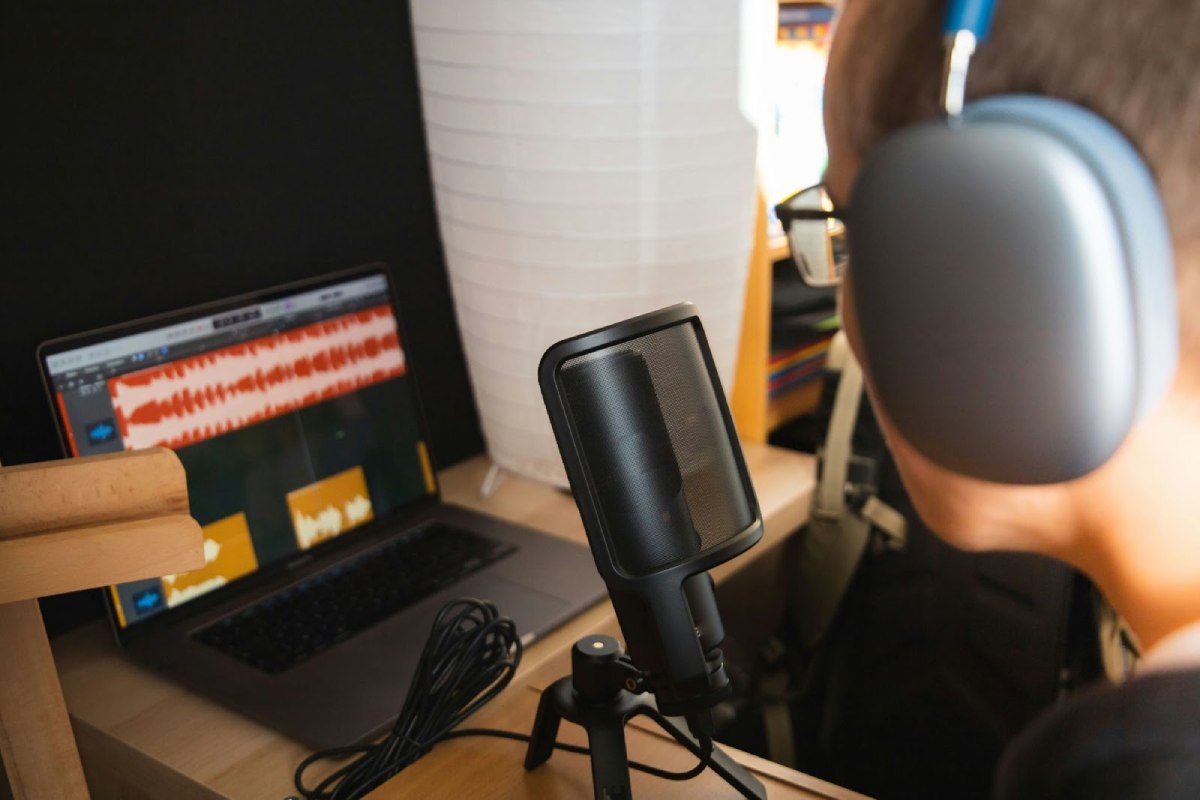Music
Phil Healy of Chicago Provides Tips for Aspiring Music Producers

Breaking into music production requires more than just talent—it takes an understanding of the craft, the right tools, and sharing your work. Producers today wear many hats, from beat-making and recording to networking and promotion. Learning how to use a DAW, developing a signature sound, and staying consistent with practice are all key pieces of the puzzle.
A home studio doesn’t have to be expensive, and building industry relationships can sometimes matter more than having top-tier gear. Sharing your music effectively through platforms and social media ensures that your creativity reaches the right audience. Whether you’re just starting out or refining your skills, these foundational steps provided by Phil Healy, Chicago, can guide you toward building a sustainable and rewarding career in music production.
The Role and Responsibilities of a Music Producer
A music producer plays a central part in shaping the sound and structure of a track. They guide the creative process, make decisions on arrangements, and work closely with artists to bring a vision to life. Their role often involves overseeing recording sessions, suggesting changes, and ensuring the final product is cohesive.
While some producers focus on beats or instrumentals, others manage the entire production cycle. A beatmaker might create loops and rhythms, but a producer handles everything from songwriting input to studio workflow. In many cases, producers act as project managers, making sure deadlines are met and everyone stays on track. They often bridge the gap between artistic vision and technical execution.
Learning the Tools of the Trade
Getting comfortable with a Digital Audio Workstation (DAW) is one of the first steps toward becoming a producer. Programs like FL Studio, Ableton Live, and Logic Pro are widely used and offer different workflows depending on your style. Learning just one thoroughly can help develop your technical ability and speed up your process over time. As you become more skilled, switching between platforms becomes much easier.
Knowing how to record, mix, and master audio takes time, but it pays off in overall sound quality. Many producers begin by watching free tutorials or reverse-engineering project files. Over time, these small lessons accumulate, turning basic knowledge into creative control. The ability to manipulate sound with precision often separates amateurs from professionals.
Creating Your Own Sound
A unique sound can set a producer apart in a crowded field. This might come from using a specific set of instruments, unusual drum patterns, or a signature way of arranging tracks. Listeners often gravitate toward music that feels distinct yet familiar. Standing out often means leaning into what makes your style different, not hiding it.
Drawing inspiration from different genres can spark creativity. A hip-hop producer might study jazz chord progressions, while an EDM artist may incorporate elements of ambient music. These influences help shape a personal style that stands out without feeling forced. Cultural and regional sounds can also influence a producer’s sonic identity.
Producers like Kaytranada or Flying Lotus have built careers by blending styles and pushing boundaries. Developing your own voice takes trial and error, but over time, patterns emerge that define your sound. It’s a process, not a one-time decision.
Setting Up a Home Studio on a Budget
Creating a home music studio doesn’t mean breaking the bank. Many beginners start with just a reliable laptop, a basic audio interface, and a pair of decent headphones. Additional gear like MIDI controllers and studio monitors can be added as needed. Even software bundles that come with inexpensive gear can be surprisingly powerful.
Some producers create entire albums in small bedroom setups using minimal equipment. The key is knowing how to get the most out of what you already have. Free or low-cost plugins, trial versions of software, and resourceful recording techniques can go a long way when you’re just starting out. Acoustics can be improved with DIY solutions until you’re ready to invest in treatment.
Building Relationships in the Music Industry
Networking is just as important as making great music. Collaborations often form through casual conversations on social media, at open mic nights, or even in online forums. These connections can lead to unexpected opportunities and long-term creative partnerships. A single introduction can open doors that talent alone might not.
A tight-knit circle of fellow artists and producers can offer honest feedback and fresh ideas. Sharing works-in-progress and exchanging knowledge builds trust and sharpens your skills. Over time, these relationships can grow into a supportive community that helps everyone grow. Some of the most successful collectives started from local meetups or online groups.
Releasing and Promoting Your Music
Sharing your music is more than just uploading a track. Creating a consistent identity—through visuals, artist name, and tone—helps listeners remember who you are. Platforms like SoundCloud, YouTube, and BeatStars give independent producers a direct way to reach audiences without middlemen. Consistency in branding can make a big difference when growing a fan base.
Social media plays a crucial role in building visibility. Short clips, behind-the-scenes content, and regular interaction with followers can build momentum. Artists who know how to market themselves often find it easier to grow a loyal fan base and get their music heard by the right ears. Timing your releases and engaging your audience can elevate a track from unnoticed to viral.
-

 Business4 weeks ago
Business4 weeks agoCorporate Social Responsibility in Action: Amerilodge’s Support of Health and Education Causes
-

 Business4 weeks ago
Business4 weeks agoWhere There Is a Will, There Is a Way: Hayson Tasher and the New Year, New Me Mindset in Security Entrepreneurship
-

 Health3 weeks ago
Health3 weeks agoMy Juno Health Enterprise Partnerships Signal Shift From Claims Management to Utilization Prevention
-

 Business3 weeks ago
Business3 weeks agoAlain Khoueiry and His Mission to Present Kazakhstan as a Land of Opportunity and Wonder
-

 Health2 weeks ago
Health2 weeks agoShame, Trauma, and the Mind-Body Connection: How Dr. Karina Menali’s Kai Wellness Frames Emotional Healing as Integral to Physical Health
-

 Music3 weeks ago
Music3 weeks agoBTS will Return With ‘BTS THE COMEBACK LIVE | ARIRANG’ Concert and New Documentary on Netflix
-

 Apps4 weeks ago
Apps4 weeks agoBest Apps with Simple IPO Application Process
-

 Tech3 weeks ago
Tech3 weeks agoBobby Atkins, Stonington Connecticut: How Effective Material Handling Supports On-Time Manufacturing Output






















